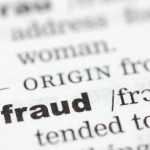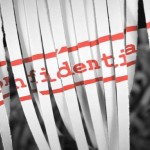Key points to remember when dealing with people in business
Key points to keep in mind when dealing with people in business:
- Be particularly careful if you are approached by someone, rather than you being recommended to the person by someone you trust.
- Doing business in an overseas country makes you vulnerable to fraudsters and scammers.
- If it sounds too good to be true it probably is!
- Ask to be taken around the business, and meet the staff. Be on alert if you only ever deal with one person in “the company” – maybe that’s all there is!
- Keep asking questions and checking the facts.
- Something as simple as an email address that does not work could be a clue that you are dealing with a fraudster
Always seek the advice of an expert Forensic Accountant. An expert Forensic Accountant can help you assess the situation and even recover money that you have invested.
Who is a typical fraudster?
So who is a typical fraudster?
Research indicates that the typical corporate fraudster is:
- Male
- Well liked and respected
- Greedy
- Has pressing financial need e.g. has a gambling or drug problem
- University educated
- Close relationship with suppliers; and
- Hardworking.
But don’t be fooled by people who don’t fit this stereotype! Don’t trust a person just because they are older, are female, appear to be wealthy, are well dressed, operate from an exclusive address, or promise you something of value. Notably, people that commit fraud understand human emotions and how to manipulate them.
What are the common warning signs of fraudulent behaviour that a Forensic Accountant looks for? (Part 2)
Continuing on from part 1 of this topic, listed below are a number of factors that should be considered when assessing whether a business is legitimate or not. If a business fails any of the following tests then you are potentially dealing with a fraudulent company or person:
- Review a sample of invoices that the company has issued. Are the invoices tax compliant? That is, do they have the organisation’s Australian Business Number on the invoice, and do the words “Tax Invoice” clearly appear on the invoice. Also check that the GST on the invoice is clearly shown on the invoice or words to the effect that GST has been included in the total value of the goods or services provided
- Be particularly mindful, if there are large amounts of cash either entering, leaving or being held on the business (e.g. in the company’s safe). Is the business being used to launder illegitimate money or is the business being used to finance some other business?
- If in doubt seek professional advice. Be particularly careful, if you are rushed into making a decision, or there is any resistance raised when you start to investigate a business or perform a due diligence.
- Many simple searches can be quickly and simply performed on the internet. For example the NSW Land Title Office can be searched to check if a company or individual owns any property. An Electoral Roll search (Adult Population Index Search) can be used to confirm an individuals personal details.
- Don’t take anything at face value. Ask to see bank and trade vendor references. Talk to the accountant, the neighbours, or anybody who has anything to do with the business.
What are the common warning signs of fraudulent behaviour that a Forensic Accountant looks for? (Part 1)
Listed below are a number of factors that should be considered when assessing whether a business is legitimate or not. If a business fails any of the following tests then you are potentially dealing with a fraudulent company or person:
- The letterhead has been typed on a personal computer.
- The wording in an email or document has grammatical errors or spelling mistakes.
- The company is not listed in the phonebook.
- The Email address or web site address is invalid.
- The company does not have its own bank account i.e. the bank account is in the name of an individual.
- The company has a Post Office address and no physical address.
- The phone number is continually engaged or diverts continually to a recorded message.
- The business is being run as a sole trader e.g. “Joe’s Plumbing Services”, rather than a limited liability company “Joe’s Plumbing Services Pty Ltd”.
- The business is being run from a private residence.
- The Australian Business Number (ABN) or the Australian Company Number (ACN) is invalid or is not quoted on company stationery.
- If the business is incorporated and uses the abbreviation “Pty Ltd”, check the Australian Securities & Investments Commission, National Names Index that the company exists, is registered, and the directors are who you think they are.
- The business is registered in a foreign country. E.g. “KZT Telecommunications Inc.” (US company), “RTW Trading Ltd” could be an Australian public company (easily checked on the ASIC website) or maybe a UK limited liability company (which you can checked online at the UK Companies House website).
To be continued at Part 2 of article.
Discovering a Fraud
It is always a disappointment when you discover that a trusted member of your team has been defrauding you or the company you work for. The impact on the business could be very extensive as the committing of the fraud will also subsequently bring other parts of the business into the investigation/resolution process. These other areas may include Human Resources, Legal, Finance and Internal Audit.
During this initial stage, it’s important to remember the legal consequences to your actions. The computer that was being used by the alleged fraudster could hold important evidence that could be used in a future civil or criminal litigation. Do you know the correct procedure for handling this evidence? How are you handling paper documents that may be relevant to the alleged crime?
It is in these situations that a forensic accountant with criminal investigation experience can assist you. It’s their job to co-ordinate the initial investigation, liaise with external legal advisers, the Police and the various departments in your company.
Once the potential evidence has been secured and other information is collated then the next phase is to decide whether the Police should be notified and action taken to recover the funds. A qualified Forensic accountant can also ensure that the information provided to the Police is in the correct format. This will increase the likelihood that the Police will prosecute the matter.
Once the dust has settled and the matter is being properly investigated, it is then time to ensure that the fraud can not be perpetrated again. An assessment of where the breakdown in internal controls occurred will allow changes to be made to prevent the loss from re-occurring.
Whilst this article outlines some basic advice, given the sensitivity of these situations and the potential legal consequences, we recommend that you seek expert advice if you find yourself in this situation.
Who are signing the cheques in your business?
The recent announcement that a Queensland property developer was imprisoned for 3 years for forging cheques (ASIC press release 09-89AD) is a timely reminder that all companies should review their cheque handling processes.
So what are some simple actions that you can take to ensure that you don’t have the same problem?
1. Check who the current cheque signatories are for each bank account in the business. Are these signatories up to date and appropriate given the current duties of each signatory? Do appropriate segregation of duties exist between the key people in the cheque payment process?
2. Are the cheques held in a secure place before they are mailed out?
3. Are bank reconciliations conducted regularly and differences isolated and reviewed. In many frauds we have investigated, a significant portion of frauds would have been detected earlier and the losses minimised if the bank reconciliations were properly conducted. In small to medium sized companies, we recommend that the Managing Director review the bank reconciliation on a monthly basis to ensure that this key process is done and there are no unreconciled differences.
Whilst the above controls are simple things that can be done immediately checked, the cheque payment process is just one of many processes where money can leak out of your business.
Over the coming weeks we will look at some other key areas to look out for.


